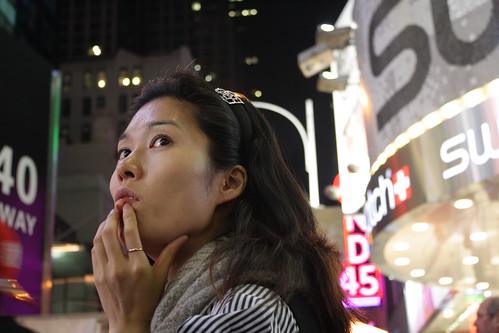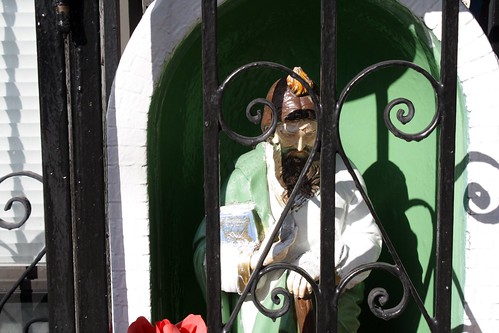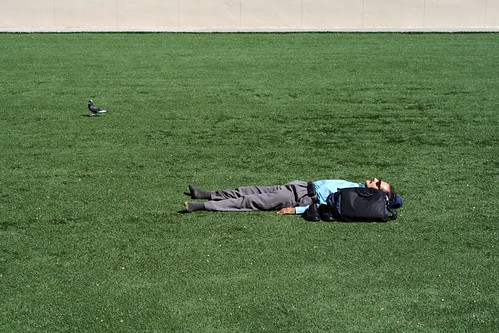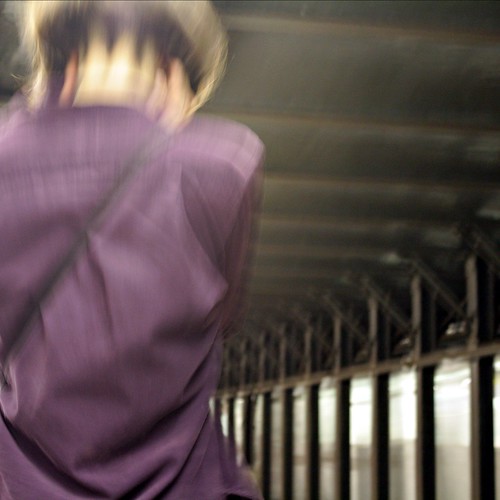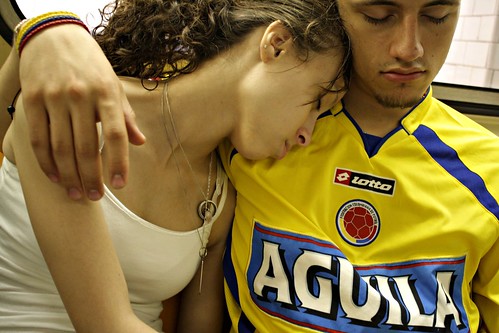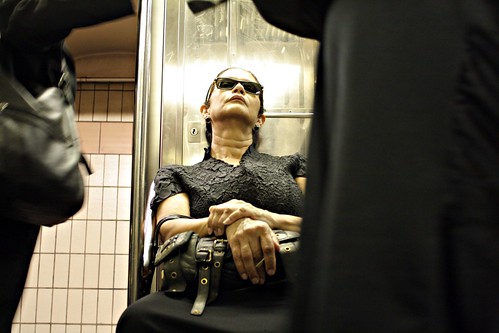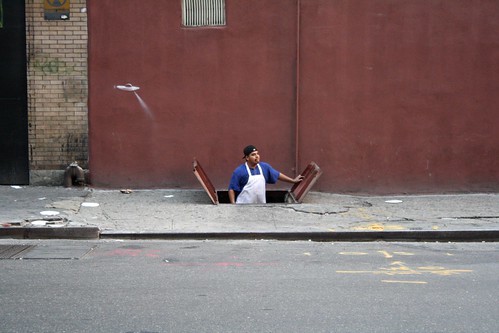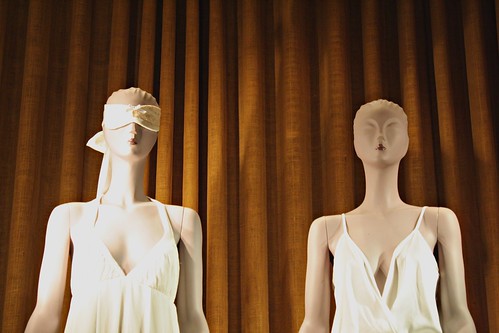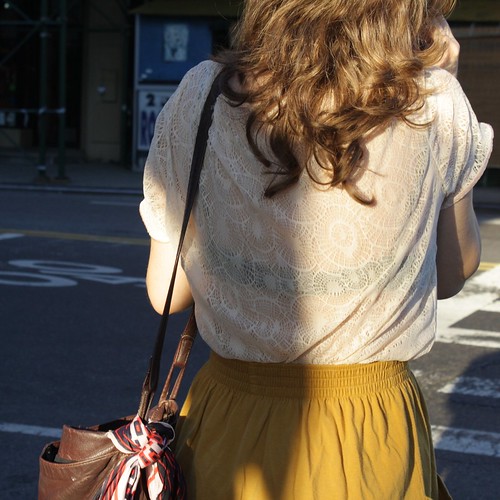
photo by Matt Walker
The Girl Without Arms
I will be with you always like a maggot
Breeds berates the thing it bathes in love
The glow of unrequited love it says so
Confirms through outfits of translucent skin
The splitting brain of one of three fruits turning slowly
An instrument flower rowing itself through brown water
All of three fruits grown on the backside of a broad farm
Hidden travels slowly over coal
DEATH RICTUS IS A DREAM RICTUS
All possible ways to plug the mouth
All possible things with which
To plug
The mouth
Burnt into button ears folded in repose
Drinks the sweat fetching mouths agape
I go to sleep late morning buried
One hundred feet below the ground
Relieve myself into failed and transplanted necks turned out
I go to sleep against the skirts of women
Internations grazing vines beside pools for something to drop of my youth
Girl washing in a porcelain tub
Boy slipping fingers between scales of beady fish
Girl drying beneath the less radiant of two dynamic sodom sun tablets
Boy validating his resemblance to the girl resembles the boy calico garden
I go to sleep to the sound of water dripping from a cold candle hung from a black roof
Pouring skin unto each other’s flames of laughter rising over apocalypse farm
I go to sleep late morning one hundred feet
Below
You looking into the veins tearing through the heels of your feet
Swinging back
And forth
One hundred feet above
Are the maggot’s affections interminable?
Can we make the maggot’s affections interminable?
Let us touch each other over the smear of a waterbird across the ground
Neck twisted scarf snap the air
Let us feed the beak a stick of dynamite
Let us shed ourselves into the network of beams; you slice yourself into a tapering and erectile root rubbed the length of the long face while I watch you slice yourself into a tapering and erectile root second and third while I watch
There will be one hundred other things going on in the mid-distance
Let us call fifty of them forward
Make making a foolish enterprise
Scorn
Of emptiness
Let us watch the second fifty conform
Into a wailing, white fence, within which an orchard of apple trees
Springs fire against the gathering sea
Numbers make like muscles against actionable sentences
All islands might withdraw
Let us watch the noise raise up the sails
The sea will be complete, unerring in the dark, like a wedding dress
Let us promise to put ourselves to better use than a wedding dress
Let us be worn by death, better than this, a string of soft shells pulled from a spiral of wet, fallopian ribbon taken into the mouth, opening in the sea, out of which a waterbird tears from the plague, tiny ringlets of blood and brain prove awful on the oil of the slow-moving waves, a column of devils shines upward
The Girl Without Arms (2)
A husband
once a horrible
husband is
a depression of catalogued
air—
Black swiids
divide the number of graves
by a snouted balance
Truthful, I say
for my daughter is a spitting image of unmended soil
electrified, Anyway
I cut her
a luxurious rooster from a tree
over a colloid pond
stretched behind her
into the ruins of a dormitory
a single egg
standing upright
on an armoire
in tights
with the nobility of a saint
strutting the rubble
until only the legs
move
streaming with embodied colors
The girl without arms
wears her pants
high
making her ass appear
longer than it actually is
Choked
with people
trying to coo
without losing too much skin
or falling asleep
Both prove true
The pond is choked with skin
She holds the rooster between her
legs
Balloonists
in the shadow
of beast trees
implode
with ancient lilac blast shadows
Fluster black and lift off
Is it the body
belaboring the wall
while in go caretakers
slipping love to aestheticize the ground into a prize-winning crust
thrown against the wall
The girl without arms makes her way
beyond the market of outsized heads
Babies in bronze
broken into eleventy rings
Nostrils tossed as cold spheres
to the bleached pussy
as love
is a limit of burning
a cold body from a dress
still pious for the emblazoned skin
basic flag cordiality
no hair
vanity. The girl without arms
patterned into a dark animal
I congratulate
the celebration
Pox of young boys looking through my dress
Benefits moving
before me
Pox
Young boys sitting on the pulled tongue of a blue
machine
sailing through the scenery
risen to lash a small carpenter
to the struts on his house
Beside a paper plate
a pit of mutts
Gums dropped of fangs
through a working mind
Touch me
I cannot find the means to navigate
the carbonated
sounds
into dance. Sleep with me tonight
A black crow on a nervous branch
cannot stand
on the stairs of its blades
I cannot bear success
for the distance it carries my porous gut
from doing
you between the trees
What trees
and flowers
will teach you to learn
relieving ourselves against upholstered boxes
of fruit
and cereal each
season storms with muted camouflage
in an untenable voice
father, Where is the festival being held
I am disposed to do something to her
crossing the peach blossom
The sound of experts on the cross
kissing, You are kissing
Let us go to the festival
The first of these girls without arms is from The Girl Without Arms, a book forthcoming from Black Ocean (early 2011). The second of these girls without arms is from a box of disinterred grave relics, ongoing. Other work by Brandon Shimoda has appeared in book form as The Alps (Flim Forum, 2008), The Inland Sea (Tarpaulin Sky, 2008), Lake M (Corollary Press, 2010) and soon, O Bon (Litmus Press, 2011).


